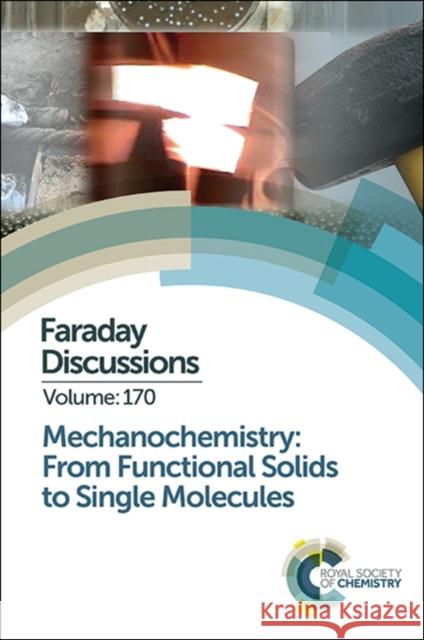Mechanochemistry: From Functional Solids to Single Molecules: Faraday Discussion 170 » książka
Mechanochemistry: From Functional Solids to Single Molecules: Faraday Discussion 170
ISBN-13: 9781782621706 / Angielski / Twarda / 2014 / 432 str.
Mechanochemistry: From Functional Solids to Single Molecules: Faraday Discussion 170
ISBN-13: 9781782621706 / Angielski / Twarda / 2014 / 432 str.
(netto: 789,74 VAT: 5%)
Najniższa cena z 30 dni: 820,74 zł
ok. 30 dni roboczych
Bez gwarancji dostawy przed świętami
Darmowa dostawa!
Mechanochemical reactions utilise mechanical force to achieve chemical transformation. Because they can be both solvent-free and less energy consuming than standard solution reactions, mechanochemical transformations are rapidly becoming popular as a sustainable alternative to conventional solution-based and solvothermal chemical processes which are inherently wasteful of solvent and energy in both the laboratory and industry. The growing interest in mechanochemical processes has in the past decade provided exciting developments in the areas of supramolecular, pharmaceutical, materials and organic chemistry and catalysis. These developments indicate that mechanochemistry will play a key role in future clean and sustainable technologies, ranging from -green- synthesis to mineral manufacturing and nanoparticle synthesis. However, such development requires improving the understanding of the underlying principles of mechanochemistry and extensive communication between researchers in its different areas. The 170th Faraday Discussion will facilitate further development of mechanochemistry in terms of applications, definitions and mechanistic understanding, and explore how its innovative, clean and energy-efficient applications could form the basis of new paradigm for academic and industrial chemistry. In this volume the topics covered include: - the mechanochemistry of organic molecules and soft organic molecules
- the mechanochemistry of inorganic compounds and coordination-based materials
- sonication and macromolecular mechanochemistry
- the mechanistic understanding, catalysis and scaling up of mechanochemistry











